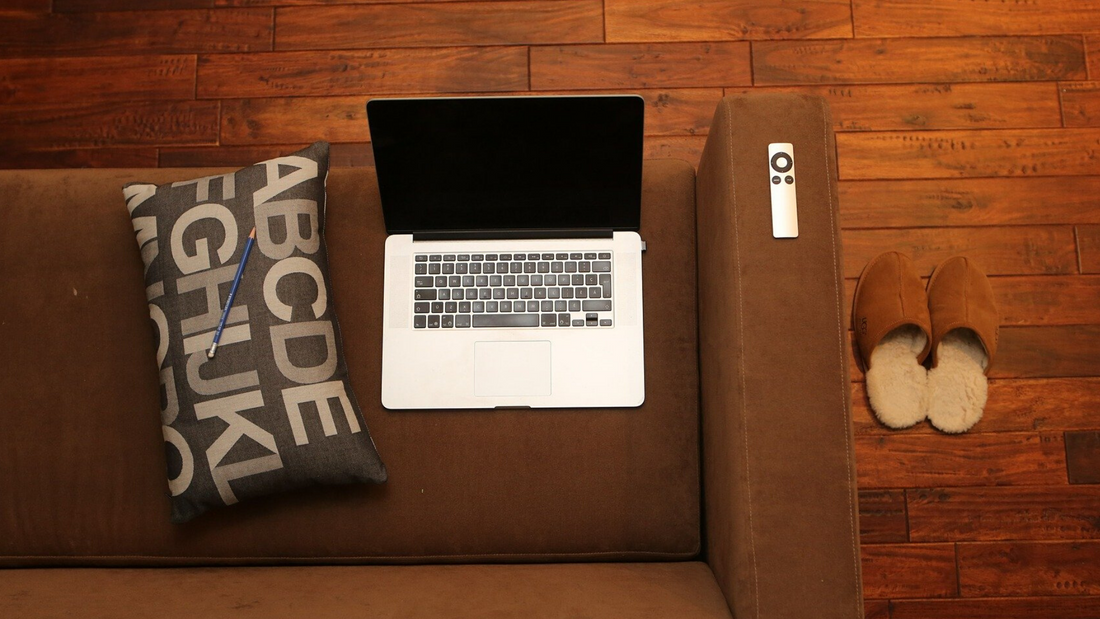From Someone Who's Done It for Years
- by Laura Anderson -
Over the last two-and-a-half years, I’ve worked as an entrepreneur, independent contractor and freelancer, and the vast majority of that work has been from the comfort of my home computer.
For many, this probably sounds terribly luxurious, but I assure you, remote work is not all play and no work! As many people are suddenly finding out, it’s quite the opposite.
As COVID-19 ravages the world and forces much of the workforce to go remote, my day-to-day routine has been relatively unaffected. Thus is the beauty of being a remote worker – when offices shut down and the workforce scrambles to go online, I’m already there, ready and able to get to work, because my home work environment is already established.
(On the other hand, if you were on the other side of this crisis and find yourself unexpectedly unemployed, maybe it’s time for a career change. notiaPoint has a variety of free resources that can help you get a job in cybersecurity. Start with the “Where to Begin” series from notiaPoint CEO Nathan Riley.)
If you haven’t had this opportunity before, don’t sweat. It doesn’t take much to pivot to working from home. In fact, I feel that many of the tips I offer here are also applicable to traditional office work.
But what may require you to dig a little deeper is your mindset and finding the motivation to keep showing up when the distractions that exist all over your own home are suddenly available to you while you’re supposed to be at work.
To help you through it, I’ve come up with a list of my top-five tips to staying productive while working remotely.
1. Set work hours.
You’ve probably encountered this advice time and time again. That’s because it works! Routines help us feel organized and grounded. They contribute to better sleep cycles which, in turn, lead to more stability in your emotional and psychological states and greater levels of health and happiness.
So set specific work hours. You may even have the flexibility to set hours that are more optimized to your personal routines, outside of the traditional 9-to-5 work day. I am not a morning person, and my productive hours fall between the window of 2-10 p.m. If you have the ability to flex your hours, do it.
Another reason to set work hours is to prevent yourself from working ALL THE TIME. This certainly depends on your personality, but for some of you, turning off work is the hardest part of your day, and without the usual physical barriers between your home and your office, it may be tempting to stay on the clock.
Don’t do it! This will only lead to burnout.
2. Communicate effectively (and overly).

Always err on the side of over-communication!
Now that your supervisor and coworkers aren’t right across the hall, it can be easy to slide off the radar. Don’t leave your boss asking themselves what the heck you’re up to while you’re out of the office. Just tell them!
Schedule a call with your boss and team at least once a week. Send out a daily email update. Ensure that expectations are set and that you are sticking to them.
If you’re working on a project and need extra time or assistance from another member of your team, just ask! If you finished a task and need something additional to work on, let everyone know. If you’re not sure, err on the side of over-communication.
Proactively communicating and touching base regularly with your supervisor and fellow staff will build trust, which will ensure your relationship with your coworkers remains strong, even if you’re missing your daily “water-cooler” chats or Friday afternoon happy hours.
3. Manage distractions.
This is probably the hardest part of suddenly working from home. All the distractions. It’s so easy for a well-intentioned 30 minute break to turn into an hours-long binge session of “The Office.” Or maybe the dust that’s been accumulating on your computer all winter is suddenly compelling you to spend the day spring cleaning.
It’s hard to not give into the wave of distractions that are now flooding your work day. But don’t fret! Here are a few things you can do to stay focused.
- Avoid surfing the web. Especially with everything that's going on in the world right now, browsing headlines or scrolling through your Twitter feed is likely just going to add to your anxieties and further distract you from working. Consider your work hours a respite from the insanity that's going on around you in the world. It's an environment you can manage and control. Take comfort in that.
- Set up a home office space. Of course, if you have a separate room for this, that’s preferable, for reasons we’ll discuss in a moment. If not, find a good surface that will allow you to feel comfortable. This means good lighting, proper seating and space to spread out your work materials.
- Keep yourself organized. Make sure that you manage the clutter in your workspace to eliminate the need to constantly clean and organize your stuff. This also includes keeping your projects on track and your schedule up to date so you keep up with deadlines and can prioritize daily tasks.
- Manage expectations of those living with you. If you’re able, try to establish your home office somewhere where you can close the door. Let your kids or partner know that when you’re working, they need to let you work so that you can all spend time together when your work hours are finished.
4. Take breaks.
Just as you should schedule hours for when you start and stop working each day, you should also be scheduling breaks throughout your day. That means walking away from your desk and computer and email.
Go for a walk. Take an hour for lunch. Stand up and stretch at least once every hour. Taking breaks from your regular work refreshes your mind, which can sprout new ideas and increase productivity.

Take that coffee break!
5. Be kind to yourself.
Moving from your work office to your home office is a HUGE transition, so be kind to yourself. If you feel less productive or isolated from your team or just lonely being stuck at home, know that you are not alone. Any transition is hard, especially one that was unanticipated, unexpected and unwanted. So cut yourself a little slack.
Alternatively, you may find that working from home is gratifying and rewarding. You may be enjoying additional time with your family or your pets or your hobbies. In that case, enjoy your new office!
Motivation Comes From Within
When it comes to working from home, motivation comes almost exclusively from yourself. If you can’t find the discipline to sit down and do the work, you probably aren’t cut out for work outside a traditional office environment.
But, if you can dig deep and work through the mental blocks that all remote workers struggle with, your home office may just become your new work sanctuary. And who knows? If you can prove to your team and supervisors that you are just as productive at home as in the office, they may let you make the move permanent.
(Laura Anderson is the Chief Innovation Officer for notiaPoint, Inc. She is also a professional writer and editor and serial entrepreneur. View her LinkedIn profile.)
Keep Tabs on notiaPoint
If you enjoyed this post and want to see more like this from notiaPoint, sign up for our newsletter.


